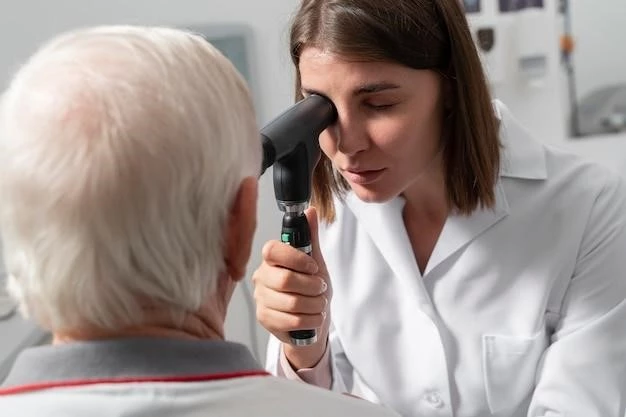Introduction
Pelizaeus-Merzbacher Disease is a genetic disorder affecting the brain and spinal cord‚ primarily observed in males. It falls under leukodystrophies.
Overview of Pelizaeus-Merzbacher Disease
Pelizaeus-Merzbacher Disease (PMD) is an inherited X-linked disorder affecting the brain and spinal cord primarily in males. It is categorized under leukodystrophies‚ impacting myelin production and leading to neurological deficits.
Common symptoms include nystagmus‚ delayed motor milestones‚ speech impairment‚ and spasticity. PMD progresses slowly‚ affecting coordination‚ motor skills‚ and cognitive functions. Diagnosis often involves imaging techniques to identify white matter abnormalities.
Genetic mutations‚ particularly in the PLP1 gene‚ result in hypomyelination‚ impacting nerve signal transmission. Management strategies focus on supportive care and research into potential treatment options.

Genetic Basis
Pelizaeus-Merzbacher Disease is linked to mutations in the PLP1 gene‚ disrupting myelin formation and impacting nerve signal transmission‚ leading to neurological symptoms.
Role of Proteolipid Protein 1 (PLP1) Gene
Pelizaeus-Merzbacher Disease is primarily caused by mutations in the PLP1 gene‚ affecting myelin production crucial for nerve signal conduction. These mutations result in hypomyelination‚ impacting the nervous system and leading to neurological symptoms.
Clinical Presentation
Pelizaeus-Merzbacher disease manifests primarily in males with symptoms including nystagmus‚ delayed milestones‚ speech difficulties‚ and spasticity impacting movement.
Symptoms in Acute Infantile Cases
In acute infantile Pelizaeus-Merzbacher disease cases‚ symptoms typically manifest in males during the neonatal or early-infantile period. Common symptoms include nystagmus‚ hypotonia‚ delayed motor milestones‚ speech delay‚ and dysarthria. Over time‚ hypotonia progresses to spasticity affecting movement and communication abilities.
Diagnosis
Diagnosing Pelizaeus-Merzbacher disease commonly involves identifying white matter abnormalities in the brain through imaging techniques like MRI.
Importance of Magnetic Resonance Imaging (MRI)
MRI plays a crucial role in diagnosing Pelizaeus-Merzbacher disease by revealing abnormal white matter patterns in the brain‚ aiding in the identification of neurological abnormalities associated with the condition.
Disease Progression
Pelizaeus-Merzbacher disease progresses slowly‚ affecting coordination‚ motor skills‚ and cognitive functions as symptoms evolve in early-onset cases.
Evolution of Symptoms in Early-Onset Cases
In Pelizaeus-Merzbacher disease‚ symptoms in early-onset cases evolve from nystagmus‚ hypotonia‚ and delayed motor milestones to spasticity impacting movement and communication abilities over time.
Treatment Options
Research findings suggest a new approach involving therapeutic suppression of proteolipid protein‚ showing promise in managing Pelizaeus-Merzbacher Disease.
Current Approaches and Research Findings
Recent studies have uncovered a new therapeutic strategy involving the suppression of proteolipid protein‚ showing promising results in managing Pelizaeus-Merzbacher Disease.
Impact on Motor Skills
Pelizaeus-Merzbacher disease affects coordination and motor skills‚ leading to difficulties in movement‚ including walking‚ muscle control‚ and overall coordination.
Effect of the Disease on Coordination and Movement
Pelizaeus-Merzbacher disease impacts coordination and movement due to abnormalities in myelin formation affecting nerve signal transmission‚ leading to challenges in motor skills‚ walking‚ muscle control‚ and overall coordination.
Cognitive Function
Pelizaeus-Merzbacher disease impacts cognitive function‚ affecting learning abilities and intellectual skills as the condition progresses‚ leading to cognitive decline.
Neurological Implications and Cognitive Decline
Pelizaeus-Merzbacher disease leads to neurological implications and cognitive decline due to abnormalities in myelin formation‚ impacting nerve signal transmission and leading to a progressive deterioration of cognitive functions.
Respiratory Complications
Pelizaeus-Merzbacher disease can lead to severe respiratory issues‚ posing challenges related to breathing and potentially impacting the quality of life.
Challenges Related to Breathing Issues
Pelizaeus-Merzbacher disease can lead to significant challenges related to breathing due to potential respiratory complications‚ impacting the quality of life and requiring specialized care and attention.
Prognosis
Pelizaeus-Merzbacher disease prognosis varies‚ with severe forms often resulting in early fatality due to respiratory complications‚ while some patients may live into middle age with the condition.
Survival Rates and Long-Term Outlook
The prognosis of Pelizaeus-Merzbacher disease varies‚ with severe forms often leading to early fatality from respiratory complications‚ while some patients may live into middle age with the condition.

Supportive Care
Supportive care for Pelizaeus-Merzbacher disease involves a multidisciplinary approach to manage the various aspects of the condition effectively.
Importance of Multidisciplinary Approach in Managing the Disease
The requested subheading is not available in the provided information snippet.
